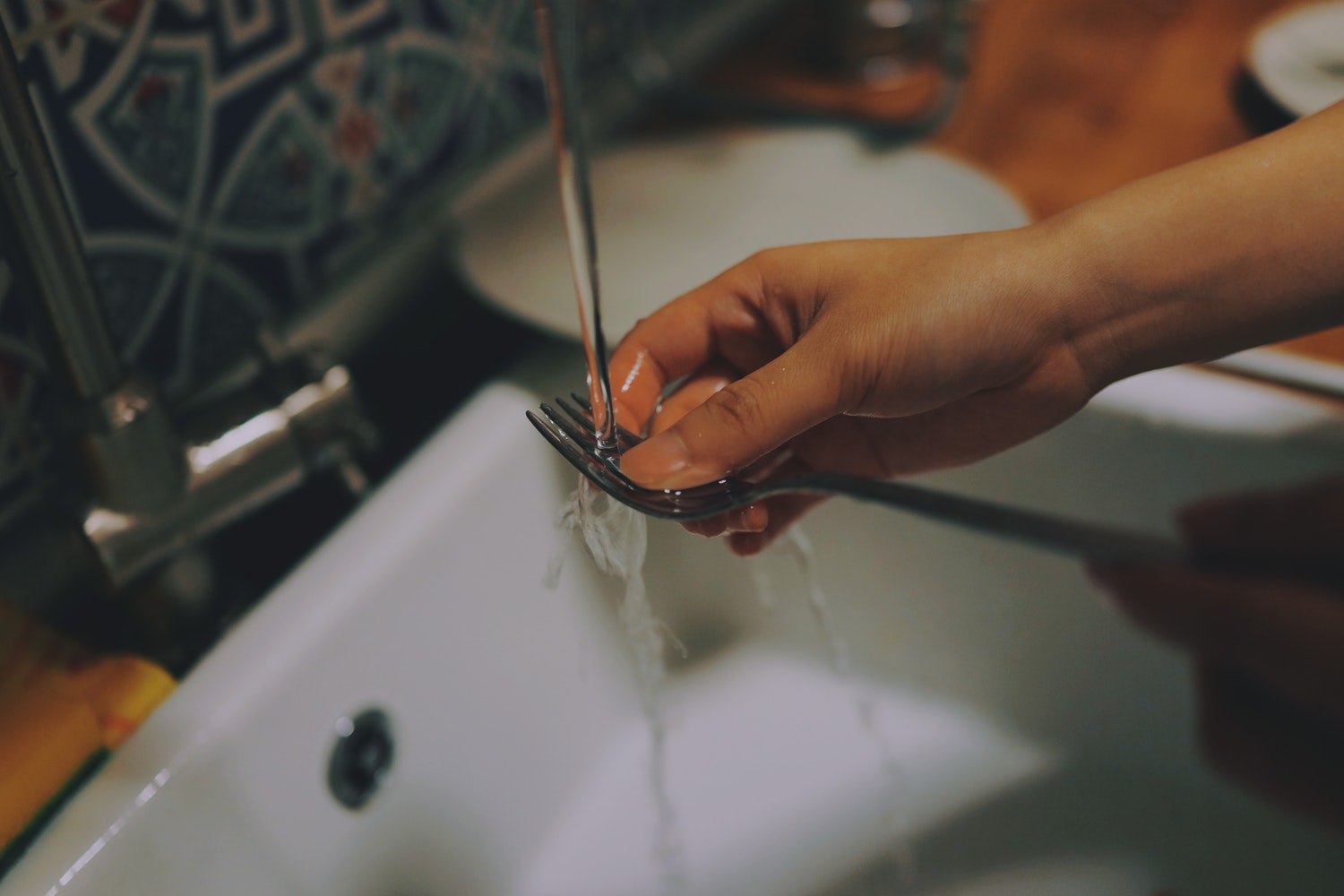Lifestyle
Is your kitchen sink disposal environmentally friendly?

“Any food that is sent down the disposal will be filtered and captured at a wastewater treatment facility. The debris captured are typically sent off to a landfill, incinerator or to an anaerobic digestion facility (for conversion into energy) if one is close by,” says Steve Dege, director of material supply chain and solutions at the recycling company TerraCycle. (Photo: Catt Liu/Unsplash)
If you’re trying to be more eco-friendly at home, should you use your kitchen garbage disposal?
It depends.
“Keep in mind that when food is added to the wastewater system, it must be further treated,” says Maggie Sauerhage, a spokeswoman for the U.S Environmental Protection Agency.
She suggests learning about your local water infrastructure first.
For starters, the most eco-friendly option for food waste is to create less of it. For unavoidable food waste, consider donating it or composting.
Beyond that, wastewater and environment experts agree that the environmental value of kitchen disposal systems depends on the wastewater system of a given locality. Disposals make sense if your wastewater system is set up to convert food waste into energy, as is the case in a growing number of big cities.
“Any food that is sent down the disposal will be filtered and captured at a wastewater treatment facility. The debris captured are typically sent off to a landfill, incinerator or to an anaerobic digestion facility (for conversion into energy) if one is close by,” says Steve Dege, director of material supply chain and solutions at the recycling company TerraCycle.
Joe Dillon, president of Racine, Wisconsin-based InSinkErator, which invented the garbage disposal more than 80 years ago, says disposals are used in more than 50 per cent of U.S. homes and in countless food-service operations. He argues that in addition to convenience, disposals are ecologically beneficial because they divert food waste from landfills.
“Using an advanced garbage disposal like the InSinkErator can lessen the environmental impact of food waste by sending the processed food particles — from meat, bones, even banana peels — through a home’s plumbing system to facilities equipped to handle them, rather than sitting in landfills and contributing to excess methane,” he says. “A growing number of wastewater facilities are installing equipment that allows them to turn food waste into renewable energy.
Cities that have introduced this technology include New York City, Philadelphia, Boston, Chicago, Milwaukee and Tacoma, Washington.”
But critics say disposals can be problematic near large bodies of water.
“There’s a lot of nitrogen in food waste, and nitrogen can be very harmful to marine and plant life,” says Nancy Seligson, supervisor of the Town of Mamaroneck, New York, and a past president of the non-profit organization Save the Sound.
“If you’re in an area like ours, on the Long Island Sound, which has been trying to reduce nitrogen in the water for 25 years, using a kitchen disposal system and adding unnecessary nitrogen to the water waste system might not be a good idea.”
Disposals also might not be the best option in areas with water shortages: Conveying food waste through pipes and treating it at a plant can be energy- and water-intensive.
“Another consideration that should be given is whether there is methane capture at their municipality’s water treatment plant. Sending food scraps into wastewater streams will change their chemical composition, and whether a municipality would be able to handle this or not is a very specific question,” says Birnur Aral, a director at the Good Housekeeping Institute focusing on environmental issues.
Sauerhage, of the EPA, says that in determining how to dispose of food waste responsibly, consider these questions: Where is the effluent going? Does it go to a wastewater treatment plant or wastewater recovery facility? Has the treatment plant said it wants organic waste? Does it operate an anaerobic digestion facility? What does it do with solids? Is there concern over damaging your household or local piping systems?
The EPA has issued a “food recovery hierarchy” to help consumers. It’s a sort of upside-down pyramid ranking possible solutions for food waste.
At the top — the most eco-friendly option — is reducing food waste, followed by distributing excess food to the hungry. The next best option is industrial uses for food waste, such as converting waste oil to fuel and food scraps to energy.
Then comes composting, either by communities or in backyards. Landfills and incinerators are the least eco-friendly destination for food waste, according to the EPA.





















